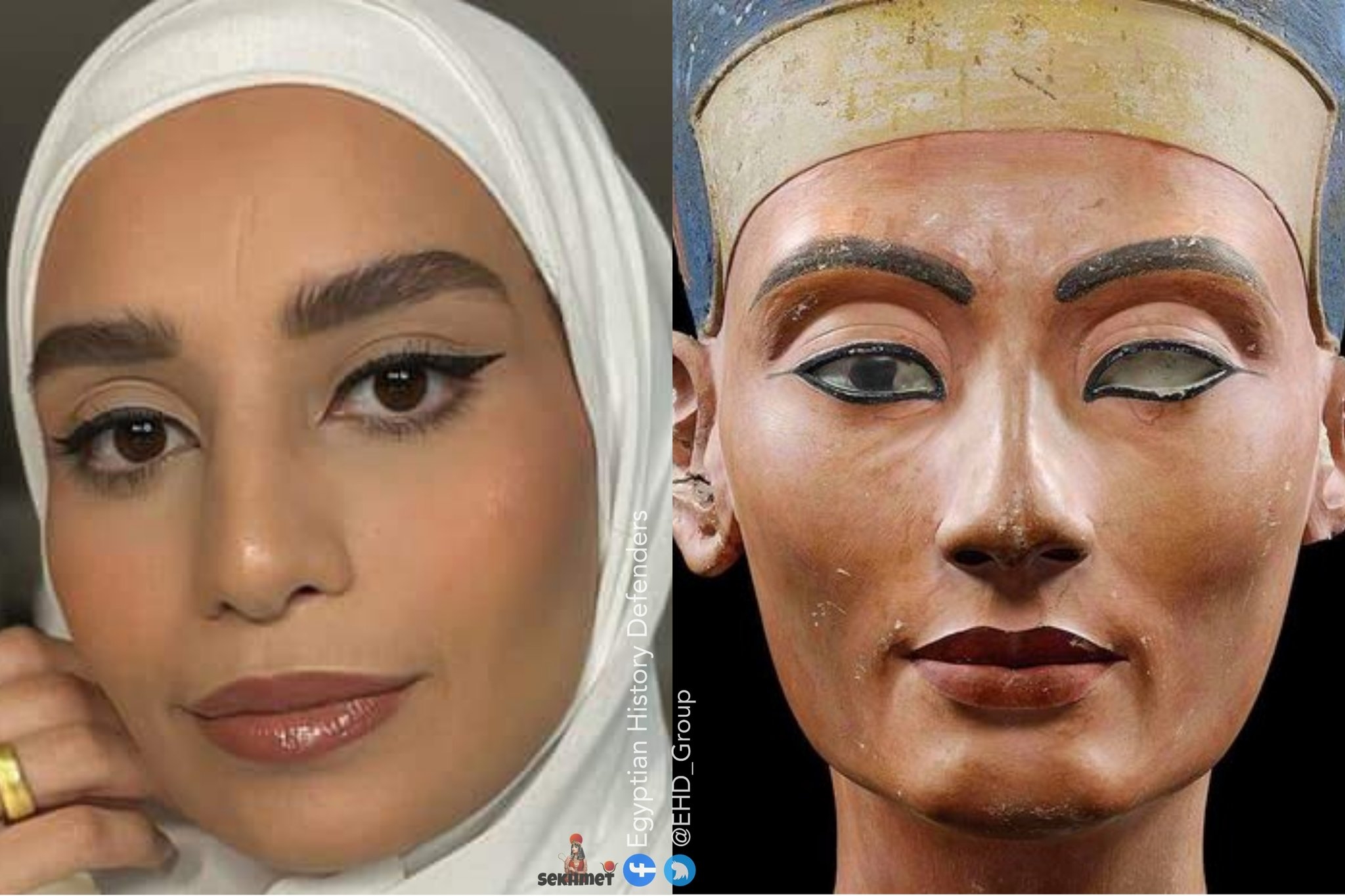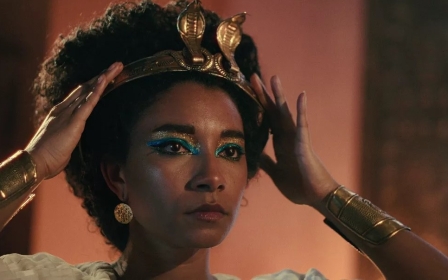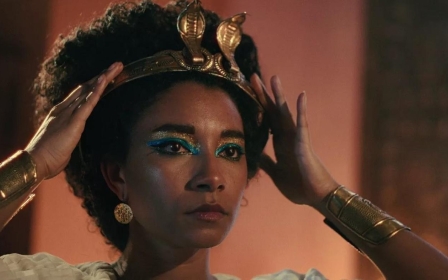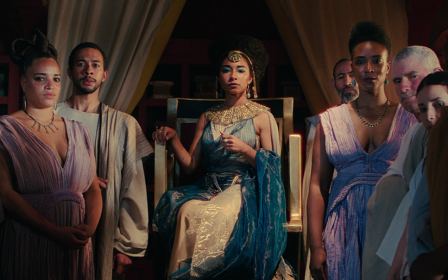Netflix: Egyptians launch social media campaign over Cleopatra depiction

Egyptians have continued using social media to debate the recent Netflix drama-documentary “Queen Cleopatra”, which depicts the legendary monarch as Black, including putting images of themselves next to the busts of ancient Egyptians.
Users shared several hashtags, including #EgyptForEgyptians, alongside pictures of both AI-generated images, as well as older depictions of the queen - and various other Ancient Egyptian figures - alongside modern-day citizens.
One tweet showcased side-by-side images of Egyptian artefacts and modern celebrities, saying: “Same faces and features throughout millennia.”
Stay informed with MEE's newsletters
Sign up to get the latest alerts, insights and analysis, starting with Turkey Unpacked
Even before its release on 10 May, the docudrama, which stars actor Adele James as the famed Egyptian ruler, had sparked a debate among some Egyptians for perceived historical revisionism and Afrocentric readings of ancient Egyptian history.
The country's antiquities ministry has also joined the heated discussion, reiterating that Cleopatra had "white skin and Hellenistic features". Soon after, an Egyptian TV channel announced that it would produce a big-budget documentary film “as historically accurate as possible”.
In one tweet that went viral, Egyptian opera singer Amira Selim used an animated video of her face transforming into an ancient Egyptian figure against a backdrop of pyramids with the text: "You can NOT steal our History, our heritage, our identity by spreading lies, using a skin colour, and through pseudo-history and propagandas [sic]”.
While many agreed with the singer’s sentiments, others argued that ancient Egypt was diverse.
One user questioned the notion of the “genetic legacy” defended by Selim, while another user said there was “no such thing as a ‘pure’ Egyptian”.
Several replies mentioned Black Egyptian citizens and called out “anti-Black racism” within North Africa as a whole.
On Tiktok, several users went to museums to showcase their perceived similarities to ancient Egyptian figures in videos labelled as “responses” to Afrocentrists.
In one, a user stands next to the bust of Pharaoh Akhenaten.
In another clip, a user stands in front of several depictions of leaders within the ancient empire, lip-syncing: “These are all my relatives, and my loved ones. This is our home.”
'Afrocentrism'
The Cleopatra documentary is not the first time a perceived inaccurate representation of Egyptians has sparked a backlash.
In February, US comedian Kevin Hart's debut show was cancelled in the country, after an outpouring of anger in the country over his alleged support for "Afrocentrism" and suggestions that ancient Egyptians were Black.
Hart’s critics accused him of distorting history and robbing Arabs of their claim to the country’s ancient past, saying he claimed that Black Africans were once the kings of Egypt.
But the quote attributed to Hart has never been verified as true, and it remains unclear where or when he made the comments.
Advocates of the Afrocentrism movement examine history through a lens that focuses on the role of Black Africans. Some followers say modern Egyptians have no claim to the country’s ancient history because they are the descendants of Arab invaders.
Middle East Eye delivers independent and unrivalled coverage and analysis of the Middle East, North Africa and beyond. To learn more about republishing this content and the associated fees, please fill out this form. More about MEE can be found here.




